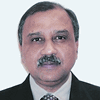Dr Aravind R Sosale, Founder Director, Diacon Hospital, Bangalore speaks to M Neelam Kachhap about his diabetes speciality hospital as well as research and training in diabetes care
How long have you been working in the field of diabetology?

Why did you set-up a diabetes speciality hospital?
Unlike other states/ cities of India, Karnataka/ Bengaluru never had a dedicated hospital for diabetes in the late 80s. In those days, starting a hospital for only a single disease was considered as unimportant; as a result of this neglect in the mindset, this critical necessity remained unaddressed. With changing times, things have evolved and more people are now coming forward to start dedicated centres for diabetes. I had started with a vision to ‘help people with diabetes’, and the mission is ongoing!
What kind of investment is required to set-up a diabetes specialty hospital?
Apart from the infrastructure, a good biochemistry lab, foot care department, radiology, cardiac testing equipment like TMT/ ECHO and a full-fledged ophthalmology department are a must. Facilities for PG teaching should always be thought of, to teach young doctors to take up this speciality. We have the first university recognised centre for study of diabetology in India. Diabetes management is a shared approach model and involves nutritionists, diabetes educators, nurse educators, podiatric nurses and other staff, apart from the diabetes specialist doctor. More than the money, a lot of investment goes in terms of your time in training the staff to care for the patients.
What is the latest in diabetes management?
In India, adults younger than 40 years of age are increasingly being diagnosed with diabetes. Even in such younger patients of diabetes, cardiovascular complications like diseases of the heart, kidneys, eyes or the nervous system may occur commonly, as highlighted in a recent study. This evidence underscores the ever understated need of continual adherence to diabetes care, and a sustainable adoption of healthy lifestyle. Newer medications are now also available, which may reduce the risk of cardiovascular death and heart failure in diabetes. Diabetes may take a toll on neuropsychiatric health! Long standing diabetes may influence the development of not only depression, but also conditions like Alzheimer’s and dementia which may impair the cognitive ability of the patient. Evidence hints towards the benefits of regular aerobic exercise, on improving cognition as well.
Good use of technology simplifies many aspects in life, and diabetes management is no different. Multiple means are now available like apps and social media, which facilitate navigation through the journey of diabetes. Many new apps will help change ‘behavioural pattern’ in days to come for patients who lack support system. At the same time, it is imperative to differentiate good technological assistance from abuse of technology. Over-reliance on Dr Google may have its own negative aspects.
Among all the complications related to diabetes which ones are life-threatening and can these complications be avoided or treated?
Vascular complications like heart/ brain/ kidney diseases, as well as non-vascular complications like infections, are essential considerations in diabetes management, and can be life-threatening. However, cardiovascular disease is the leading cause of death in patients of diabetes. A half to three-quarter of patients, succumb to cardiovascular death. In fact, the presence of diabetes multiplies the risk of cardiovascular disease by nearly two-fold, as compared to healthy adults.
What are your plans for Diacon Hospital in the next five years?
We started the hospital with the promise of ‘Affordable, Accessible and Accountable’ treatment to all our patients. We will continue to keep our promise as we expand the hospital from the existing
25 beds to 50 beds. The Department of Nephrology will start with affordable plans for patients on dialysis. We will continue our efforts with the state and central government to recognise the hospital for all their employees. We are planning ‘budget’ models to include patients of ESI and Arogyabhagya card holders. Over 100 patients with Type I diabetes are getting free treatment including insulin. These numbers will be increased. Young consultant doctors and those in training will be encouraged to do research on a regular basis along with teaching. We will ensure that 40 per cent of their time in the hospital is dedicated to research and teaching, which is the need of the hour.
Success is for others to see and we have never chased it. Our motto is to make the ‘life of a diabetic patient sweet without sugar’ has been the motto!




Comments are closed.